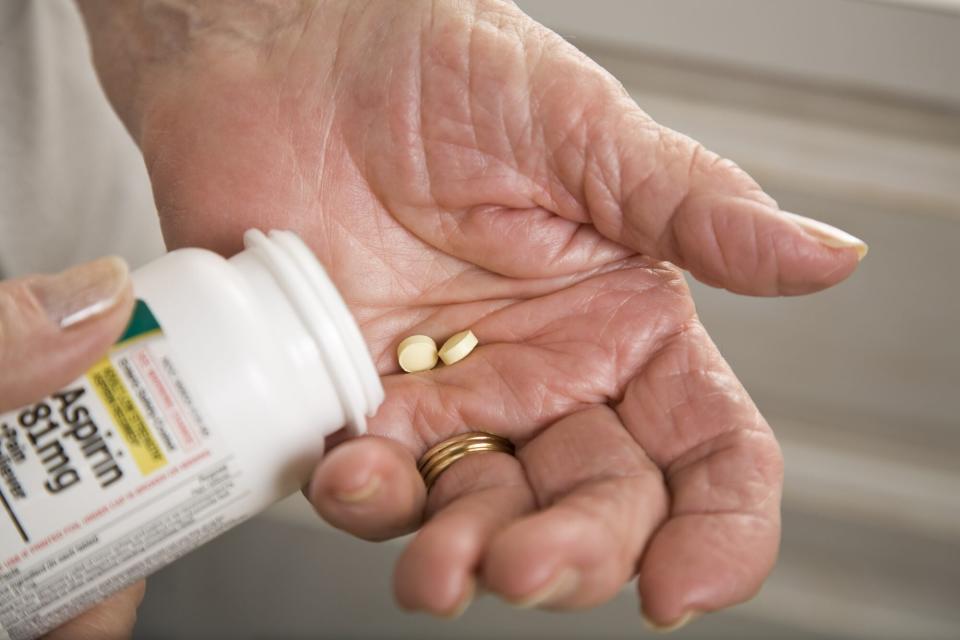Do You Take a Daily Dose of Aspirin? Here's Why You May Want to Reconsider
Taking a daily low-dose aspirin has long been recommended as a way to lower your risk of heart attack and stroke, but a new guidance released by the U.S. Preventive Services Task Force indicates that this is no longer the case. The government agency updated its recommendation on Tuesday, stating that adults in select age groups should only take aspirin if their doctors have determined they're at high risk for heart disease. "Daily aspirin use may help prevent heart attacks and strokes in some people, but it can also cause potentially serious harms, such as internal bleeding," says task force member John Wong, M.D. "It's important that people who are 40 to 59 years old and don't have a history of heart disease have a conversation with their clinician to decide together if starting to take aspirin is right for them."
The previous guidance recommended that individuals over 50 take a daily low-dose of aspirin if they'll be at risk for cardiovascular disease or stroke within the next decade. The updated guidance states that adults in their 40s and 50s should only take aspirin if they're already at high risk for heart disease and stroke—not as a preventative measure. People aged 60 or older should not take aspirin for heart disease and stroke prevention at all. If you've already had a heart attack or stroke doctors say you should continue taking aspirin daily.

dszc / Getty Images
Related: Research Says Drinking in Moderation Can Help Protect Against Heart Attacks or Strokes
Aspirin was originally recommended as a preventative measure to adults in an effort to prevent heart disease and stroke—the leading causes of death in the United States. Now doctors say the risks of aspirin may not be worth the benefits. Aspirin is an anticoagulant, which means it helps prevent blood clots from forming. Clots that disrupt blood flow to the heart cause a heart attack, while cots that cut off blood flow to the brain lead to a stroke. However, aspirin also prevents blood from clotting at wound sites, meaning that taking the medicine increases the risk of internal bleeding in the stomach, intestines, and brain.
The risks associated with taking aspirin are the reason for the updated guidance. "The latest evidence is clear: starting a daily aspirin regimen in people who are 60 or older to prevent a first heart attack or stroke is not recommended," says task force member Chien-Wen Tseng, M.D.
There are still other steps you can take to prevent the risk of a first heart disease and stroke. Maintaining a healthy diet, exercising regularly, living tobacco-free, and taking medicines prescribed by your doctor are all ways to promote heart health and reduce risk factors for cardiovascular disease and stroke.

